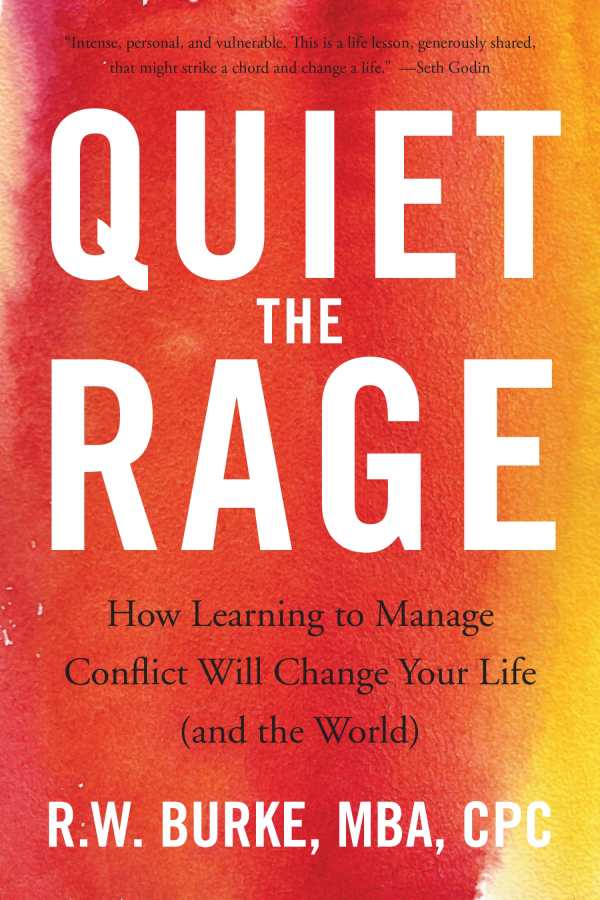Quiet the Rage
How Learning to Manage Conflict Will Change Your Life (and the World)
Quiet the Rage is a jumping-off point for those interested in self-directed anger management; it’s written from a wealth of experience.
With instructions for turning anger from an emotional reaction into an empowering action, R. W. Burke’s Quiet the Rage explains anger management in a compelling, accessible way.
The text suggests that understanding how conflict works can help people understand their own roles in it; how they might be the source of the conflict; and how to stop taking on that role through a change in behavior. The book uses a straightforward five-step process to support anger management. Chapters on seven core values and actions, including reflection, readiness, and rage, explain the deeper significance of each, alongside some of Burke’s personal story.
Personal examples mix with poetry, remembered dialogue, math equations, and other metaphors to help bring values to life. For example, Einstein’s theory of relativity is transfigured to a theory of reactivity: “emotional energy equals the magnitude of the reaction times the constant,” which is the individual’s personal values set. Quick mnemonic devices like “E=MC2” are easy ways to remember and execute the book’s lessons in real life, transforming a negative emotion to a positive one and a negative reaction to a positive one.
The book is written in a conversational style; each chapter reads like a casual mini-lecture, clearly conveyed in a distinctive, motivational voice. Short sentences, punctuated by expletives, convey ideas in rough, “masculine” language. (Although it is not explicitly written for men, Quiet the Rage is aimed at an audience that feels boxed in, angry, and has limited access to their emotional vocabulary.)
Despite its self-help elements, the book is essentially a memoir wrapped in a collection of useful insights. Friendly and approachable sections resonate with the expressed desire to be a better person. Little research is included, although there are some citations from a psychotherapist’s article on abandonment and PTSD.
Although the book’s theme is anger management, Burke’s personal stories err on the side of “rage” rather than “resolution,” and include disturbing, violent revenge fantasies. One especially angry section talks about Burke’s relationship with his father, whom he considers beyond forgiveness. The anger below the book’s surface undermines its larger promise: that serenity is accessible to everyone, even in challenging relationships.
Quiet the Rage is a jumping-off point for those interested in self-directed anger management; it’s written from a wealth of experience.
Reviewed by
Claire Foster
Disclosure: This article is not an endorsement, but a review. The publisher of this book provided free copies of the book and paid a small fee to have their book reviewed by a professional reviewer. Foreword Reviews and Clarion Reviews make no guarantee that the publisher will receive a positive review. Foreword Magazine, Inc. is disclosing this in accordance with the Federal Trade Commission’s 16 CFR, Part 255.

